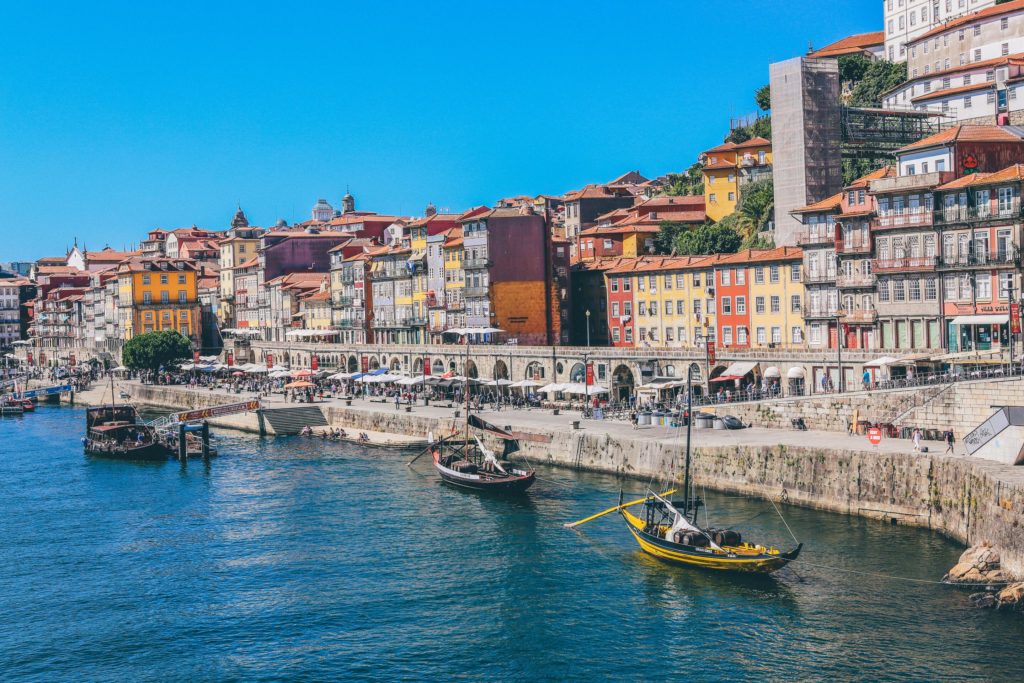Portugal’s real estate is appealing for a variety of reasons. The nation provides a high standard of living, beautiful landscapes, and a laid-back way of life. Additionally, purchasing real estate might provide a road to citizenship, which comes with additional benefits for successful candidates, owing to the Portugal Golden Visa Program. Portugal has a homeownership rate of around 74%, which is greater than the global average in comparison to many other nations. In Portugal, there are no limitations on foreigners purchasing real estate, and the market is firmly established.

Purchasing a home in the Portugal as a citizen of India
For foreigners looking to purchase real estate in the country, there are neither additional criteria nor paperwork. To purchase real estate, you need a fiscal number or Numero de Contribuinte. This may be obtained from the neighborhood tax office or is given to you when you create a local bank account.
The golden visa scheme of Portugal
As long as you are resident in the country for at least 14 days every two years, purchasing property there entitles you to a Portugal resident visa. Thus, you can purchase properties and get residence. Moreover, five years after gaining residence, you may seek citizenship and an EU passport. A passport permits you to live, work, and study anywhere in the European Union, Liechtenstein, Norway, Iceland (EEA), and Switzerland in addition to remaining in Portugal forever. 187 nations also provide visa-free travel.
Portugal’s cost of real estate
If you’re considering purchasing properties in Portugal, your choice of location will have a big impact on the amount you spend. The most well-liked locations for foreigners wishing to settle in Portugal are the city and the Algarve beach regions. One of the most affordable locations to purchase real estate in Portugal is in the city and surrounding suburbs of Braga. In addition to being an excellent place to get a cheap house, this northern metropolis is often named Portugal’s happiest city. Braga is a great option for young families, pensioners, those wishing to establish a company, and many other groups of people because of its reasonable real estate pricing and many other alluring features. If you do want to live close to a major city, such as Lisbon or Porto, search slightly outside the downtown area. Property costs significantly decrease when you seek outside of the city.
Legal requirements
Using a notary is one of the most crucial legal requirements for purchasing real estate in Portugal. The notary functions as a middleman on behalf of the state, as opposed to your independent solicitor, and is in charge of things like checking the Land Registry (Conservatória de Registo Predial) and Inland Revenue (Repartiço de Finanças) to ensure that the property can be sold legally and to look for any restrictions on its use. The contracts will then be signed by you and the seller in front of the notary.
Down payments and deposits
At the time of signing the original contract to buy your new house, you will pay a deposit equal to at least 20% of the transaction price (Contrato de Promessa de Compra e Venda). You must first notarize this agreement to continue with the procedure. If you are not in Portugal, you can pay your deposit from India. This required sending money abroad to pay for the deposit amount. It’s crucial to find the greatest bargain if you’re sending a sizable sum of money across currency borders.
Taxes
Although you are responsible for costs as a buyer, they depend on the situation. The primary expense is IMT transfer tax, which is scaled based on the property’s purchase price. The first €92,407, however, is exempt from IMT provided the house serves as your primary dwelling. Consult your attorney about the fees that will likely be assessed given your situation. Taxes and fees also include:
Stamp fees
This amounts to 0.8% of the home’s worth.
Municipal Fee on Transmissions (IMT)
Depending on the price of the residence, this is determined on a sliding scale ranging from 2-8%. If the property is a second residence, there is a greater tax due.
Fees for notaries and land registers
These are often bundled and account for 0.2% to 1.2% of the cost of the property. The seller often foots the bill for the estate agent’s fees.
Property buying hazards to watch out for in Portugal
Scams are one of the major hazards to watch out for when purchasing real estate abroad. Fortunately, there are some steps you can take to prevent them. First, confirm that the real estate agent you have selected is duly registered. All agents must be licensed and registered with the appropriate organization, known as the Associacao de Mediadores Imobiliarios. Speak with the Instituto da Construço e do Imobiliario (the body responsible for construction and realty) to inquire about your agent’s qualifications. It’s crucial to do a thorough study before choosing your independent lawyer. You should be aware that in Portugal, there are occupations for both a solicitador and an advogado. An advogado is a licensed attorney, while a solicitador is a conveyancing expert. When planning your home purchase, an advogado will often be the superior option despite being more costly.


